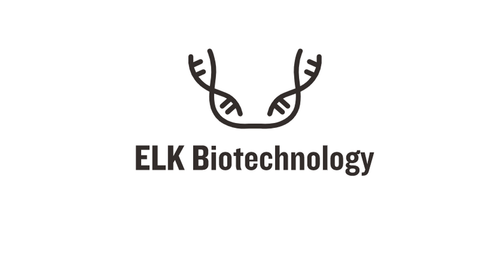Product Description
Human Proteasome subunit alpha type-1 (PSMA1) ELISA Kit | AE25519HU | Abebio
Species Reactivity: Human (Homo sapiens)
Abbreviation: PSMA1
Alternative Name: HC2; MGC14542; MGC14575; MGC14751; MGC1667; MGC21459; MGC22853; MGC23915; NU; PROS30; 30 kDa prosomal protein|macropain subunit nu|multicatalytic endopeptidase complex subunit C2|proteasome alpha 1
Application: ELISA
Range: 0.156-10 ng/mL
Sensitivity: 0.067 ng/mL
Intra-Assay: ≤4.6%
Inter-Assay: ≤8.3%
Recovery: 1, 1
Sample Type: Serum, Plasma, Other biological fluids
Detection Method: Sandwich
Analysis Method : Quantitive
Test Principale: This assay employs a two-site sandwich ELISA to quantitate PSMA1 in samples. An antibody specific for PSMA1 has been pre-coated onto a microplate. Standards and samples are pipetted into the wells and anyPSMA1 present is bound by the immobilized antibody. After removing any unbound substances, a biotin-conjugated antibody specific for PSMA1 is added to the wells. After washing, Streptavidin conjugated Horseradish Peroxidase (HRP) is added to the wells. Following a wash to remove any unbound avidin-enzyme reagent, a substrate solution is added to the wells and color develops in proportion to the amount of PSMA1 bound in the initial step. The color development is stopped and the intensity of the color is measured.
Product Overview: Proteasome subunit alpha type-1 is a multicatalytic proteinase complex with a highly ordered ring-shaped 20S core structure. The core structure is composed of 4 rings of 28 non-identical subunits; 2 rings are composed of 7 alpha subunits and 2 rings are composed of 7 beta subunits. Proteasomes are distributed throughout eukaryotic cells at a high concentration and cleave peptides in an ATP/ubiquitin-dependent process in a non-lysosomal pathway. An essential function of a modified proteasome, the immunoproteasome, is the processing of class I MHC peptides. This gene encodes a member of the peptidase T1A family, that is a 20S core alpha subunit. Two alternative transcripts encoding different isoforms have been identified.
Stability: The stability of ELISA kit is determined by the loss rate of activity. The loss rate of this kit is less than 5% within the expiration date under appropriate storage condition. The loss rate was determined by accelerated thermal degradation test. Keep the kit at 37°C for 4 and 7 days, and compare O.D.values of the kit kept at 37°C with that of at recommended temperature. (referring from China Biological Products Standard, which was calculated by the Arrhenius equation. For ELISA kit, 4 days storage at 37°C can be considered as 6 months at 2 - 8°C, which means 7 days at 37°C equaling 12 months at 2 - 8°C) .
 Euro
Euro
 USD
USD
 British Pound
British Pound
 NULL
NULL








